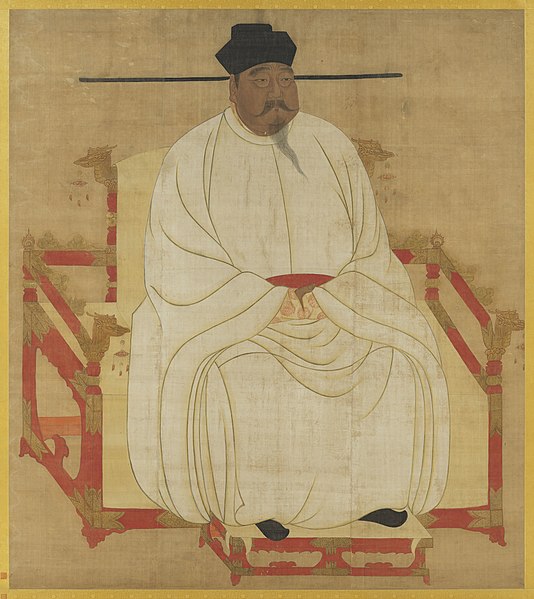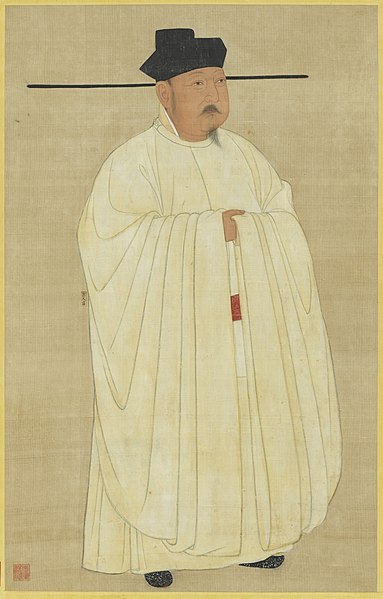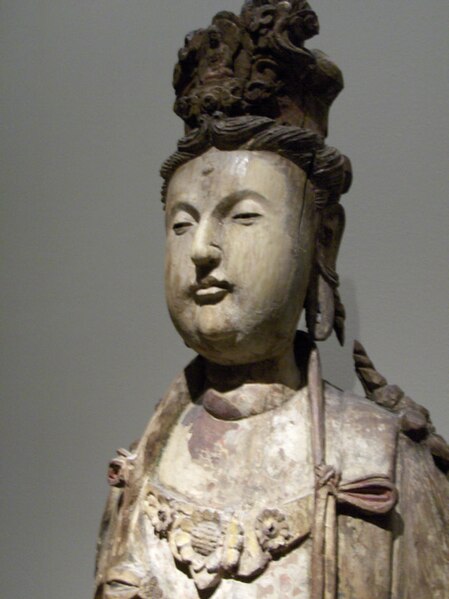Cheng Yi (1033–1107), also known by various other names and romanizations, was a Chinese classicist, essayist, philosopher, and politician of the Song Dynasty. He worked with his older brother Cheng Hao. Like his brother, he was a student of Zhou Dunyi, a friend of Shao Yong, and a nephew of Zhang Zai. The five of them along with Sima Guang are called the Six Great Masters by his follower Zhu Xi. He became a prominent figure in neo-Confucianism, and the philosophy of Cheng Yi, Cheng Hao and Zhu Xi is referred to as the Cheng–Zhu school or the Rationalistic School.
Imaginary of Cheng Yi by Shangguan Zhou (上官周, b. 1665).
The Song dynasty was an imperial dynasty of China that ruled from 960 to 1279. The dynasty was founded by Emperor Taizu of Song, who usurped the throne of the Later Zhou dynasty and went on to conquer the rest of the Ten Kingdoms, ending the Five Dynasties and Ten Kingdoms period. The Song often came into conflict with the contemporaneous Liao, Western Xia and Jin dynasties in northern China. After retreating to southern China following attacks by the Jin dynasty, the Song was eventually conquered by the Mongol-led Yuan dynasty.
Emperor Taizu of Song (r. 960–976), a court portrait painting
A portrait of Emperor Taizong of Song (r. 976–997)
A wooden Bodhisattva from the Song dynasty (960–1279)
Flock of Crane over Song Palace painting by Emperor Huizong





